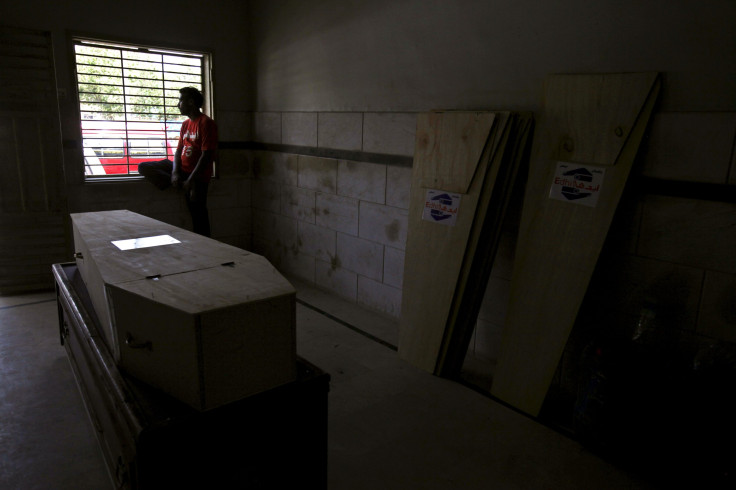Deadly Heat Wave In Karachi, Pakistan, Leaves City Grappling With Power Outages, Water Scarcity

At least 120 people have died in Pakistan’s capital city as a result of a devastating heat wave that brought temperatures as high as 113 degrees Fahrenheit over the weekend, officials reported Sunday, according to Pakistan Today. Frequent, deliberate power outages – meant to ease the pressure on electric companies in the face of increased energy demands – made dealing with the heat more difficult for residents already dealing with a city-wide water shortage.
The number of people killed as a direct result of the heat wave has been hard to determine, as the cause of death for some of the victims being brought to local hospitals has sometimes been uncertain. “So far, we have received over 90 dead bodies at Jinnah Postgraduate Medical Centre since Saturday night,” Seemin Jamali, head of the hospital’s emergency department, told Pakistan Today. He added that 10 of the bodies were brought to the hospital Saturday night and that the others arrived Sunday. “They may have been suffering from different diseases, but most of them died [from] heat stroke or heat exhaustion,” said Jamali.
Summer temperatures in the city have soared, and officials say it could get worse. Meteorologists said the high temperatures would continue for another day Monday, but that some areas could expect occasional thundershowers, including over parts of Sindh, the province that includes Karachi. Officials thought the heat wave could break the city’s record-high temperature of 116 degrees Fahrenheit, set in June 1979, according to the Agence France-Presse.
The heat and subsequent power outages have brought some residents of Karachi to their boiling points. Protests erupted in the city Sunday as residents grew ever angrier over the unannounced outages. The heat has resulted in higher energy demands as residents increasingly used air conditioners and fans to try and beat the weather, putting pressure on the city’s electricity distribution networks, according to Business Recorder.
“We are trying to cope with the situation to the best of our ability,” a spokesperson for K-Electric said Saturday. “This is the highest power demand we have seen in a long time.”
Heat waves around the world are occurring more often and with greater intensity in recent decades, something scientists have said is the result of climate change. “The frequency of hot extremes over land has continued to increase in the last 15 years, despite an apparent stabilization of the global mean temperature,” said the lead author of a study published last year in the journal Nature Climate Change. Other research has shown a dramatic increase in summer heat waves across the globe.
© Copyright IBTimes 2024. All rights reserved.






















